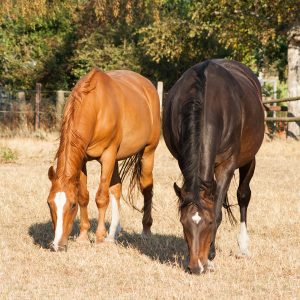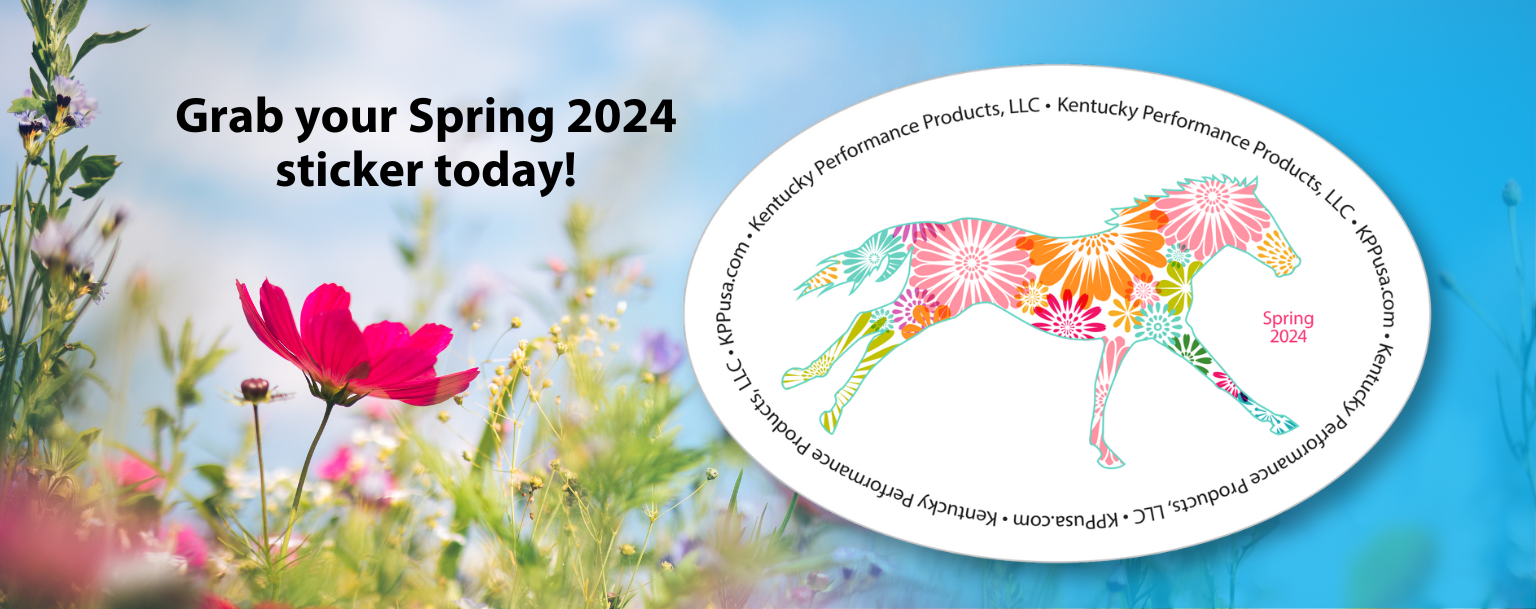
Nutritional Considerations for Horses in Drought Conditions
Careful management of your horse year-round will help ensure that he remains healthy during drought conditions.
In the short-term future, the first and perhaps most elementary and immediate point to consider is nutrition. As the drought in Kentucky and surrounding states rages on, pastures may be brown and their bounty less than nutritious. If you rely heavily on pastures to provide calories for your horse, he may not be receiving sufficient energy from them to support even moderate exercise. Because plant growth slows and sometimes ceases altogether during a drought, horses might have to be given supplemental forage in the form of good-quality hay. Keeping a close eye on your horse’s weight as he continues work will help ensure that he maintains optimal body condition. In addition to the quantity of forage offered, the quality must also be considered. Horses typically derive sufficient vitamin E when they consume fresh pasture grasses. Drought-stricken pastures, however, are likely to be deficient in vitamin E. Therefore, supplementation with a natural vitamin E supplement is advisable in drought conditions. You can differentiate between natural and synthetic vitamin E by looking closely at the label. In the ingredient list, if the word “tocopherol” is preceded by a “d,” it is a natural vitamin E product; a “dl” signifies that the vitamin E included is synthetic. Natural vitamin E is preferable because it is better absorbed by the horse.
Two management points that must be considered year-round that could help maintain soundness in dry conditions are proper hoof and joint care.
Maintaining a working relationship with your farrier is key to high-quality hoof care. He is the go-to person when something is amiss with your horse’s feet; therefore, he’s also the individual to whom you should speak about preserving your horse’s feet during a drought. If your horse is experiencing unusual problems that you feel might be caused by his dry environment, ask him about shorter shoeing intervals, different shoes, or other alternatives that might step up hoof health. If your horse is prone to poor-quality hooves, regardless of the season, then supplementation with a well-formulated biotin product is recommended. Be sure the supplement you choose contains at least 20 mg of biotin per daily serving, as this is the amount proven to improve hoof quality.
Most hard-working equine athletes, no matter how meticulously they’re cared for, will experience performance-related joint problems sometime in their careers. Pounding on unyielding surfaces such as drought-stricken fields and cross-country courses will only increase the likelihood of unsoundness, especially in horses predisposed to problems. Some of these lamenesses will invariably be the result of joint pain. Nourishing the joints of performance horses throughout the year will help maintain joint integrity during periods of intense work. Ask your veterinarian about a joint supplement that provides the appropriate ingredients for joint health (glucosamine, chondroitin, and hyaluronic acid). Steer clear of overpriced products that feature only one or two of the necessary components.
Not only is concussion a concern during work, it may also be a problem during your horse’s leisure hours. With fly season in full swing, your horse may spend lots of time stomping his feet, increasing the stress he places on joints and bones. Some horses stomp with great force, and the repeated nature of the behavior could cause problems. If he and his pasturemates have a shed or a favorite shady spot that is worn down to bare dirt, it might be a good idea to haul in some softer footing for these areas. This will help reduce concussion during these periods of rest.



1 Comment
I can’t help but comment on this article because here in California, especially this time of year, our paddocks resemble the ones shown. With the information contained in this article, I feel better about making appropriate supplement choices for my small herd of Connemara Ponies.
Thanks KPP, love the new site!